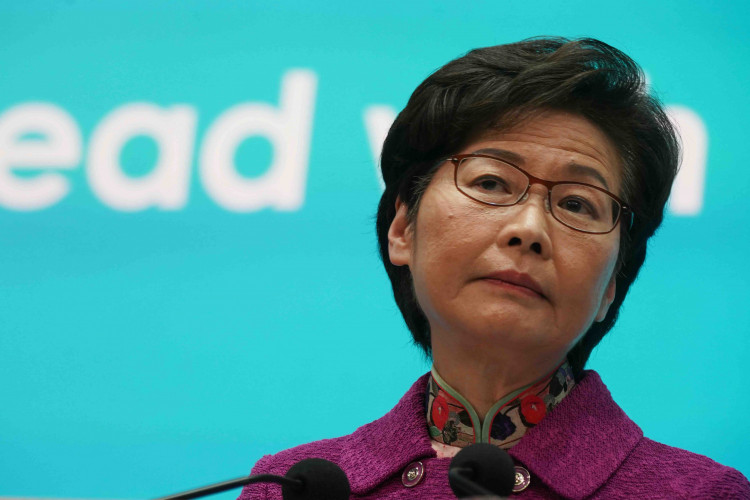Hong Kong leader Carrie Lam's cash is no longer welcome at Japan banks, the government there said as it pledged to follow American sanctions related to Magnitsky Act violations.
A third round of financial restraints in the U.S. will be implemented against China officials for their roles in the disqualification of four pro-democracy Hong Kong politicians last month.
It is unclear if the city's chief executive, who first appeared on the U.S. Office of Foreign Assets Control's sanctions list earlier this year, has accounts with Japan institutions - but the repercussions for other officials are serious.
"This will infuriate the leadership of the Chinese Communist Party, who are enormously rich and probably investing in Japan," Japan member of parliament Jin Matsubara told his government.
Matsubara submitted a written question to the government concerning the role of Japan banks in overseas sanction regimes.
"The government asks Japanese financial groups that have offices overseas to consider the fact that laws and regulations on sanctions in those countries may be stricter than those of Japan," authorities said in response.
"This now means that U.S. sanctions will be automatically applied in Japan," the MP said. "And it's not just Carrie Lam. Other designated Chinese officials will also have their accounts frozen now."
Officials who hold real estate and other assets in Japan will encounter "serious difficulty," Matsubara predicted, as they look to divest before more regulatory barriers appear.
Pressure is mounting worldwide on party members who don't serve in official government roles. On Wednesday, the Trump Administration slapped Magnitsky-related sanctions on Macau-based gangster and communist party member Wan Kuok-koi.
"On International Anti-Corruption Day, the department of the Treasury remains fully committed to imposing costs on those who facilitate corruption at the expense of the people," deputy secretary Justin G. Muzinich said.
Wan, who is the leader of the 14K criminal organization, founded the Cambodia-headquartered Hongmen History and Culture Association as a front for his legal and illegal business - including the sale of cryptocurrencies, real estate investments and casino development.
Hongmen is linked to a security group often hired by the China government and private companies for work related to the country's Belt and Road Initiative.





